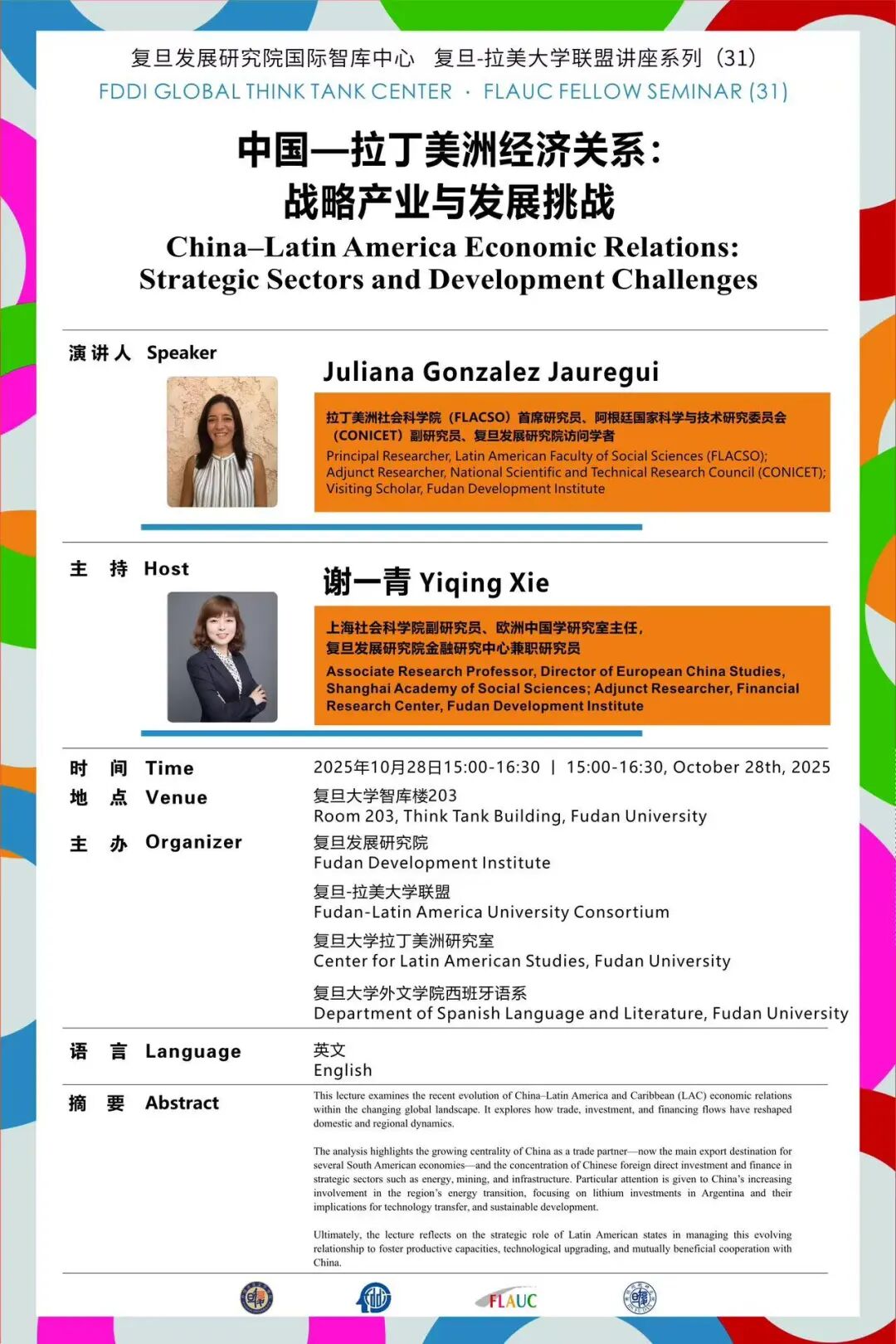作者:FDDI 发布时间:2025-10-27 来源:复旦发展研究院+收藏本文

主 题 / Title
中国—拉丁美洲经济关系:战略产业与发展挑战
China–Latin America Economic Relations:
Strategic Sectors and Development Challenges
主 讲 / Speaker
Juliana Gonzalez Jauregui
拉丁美洲社会科学院(FLACSO)首席研究员
阿根廷国家科学与技术研究委员会(CONICET)副研究员
复旦发展研究院访问学者
Principal Researcher, Latin American Faculty of Social Sciences (FLACSO); Adjunct Researcher, National Scientific and Technical Research Council (CONICET); Visiting Scholar, Fudan Development Institute
主 持 / Host
谢一青
Yiqing Xie
上海社会科学院副研究员
欧洲中国学研究室主任
复旦发展研究院金融研究中心兼职研究员
Associate Research Professor, Director of European China Studies, Shanghai Academy of Social Sciences; Adjunct Researcher, Financial Research Center, Fudan Development Institute
时 间 / Time
2025年10月28日 15:00-16:30
15:30-15:00, May 22, 2025
地 点 / Venue
复旦大学智库楼203
Room 203, Think Tank Building, Fudan University
主 办 / Organizer
复旦发展研究院
Fudan Development Institute
复旦-拉美大学联盟
Fudan-Latin America University Consortium
复旦大学拉丁美洲研究室
Center for Latin American Studies, Fudan University
复旦大学外文学院西班牙语系
Department of Spanish Language and Literature, Fudan University
语 言 / Language
英文
English
摘 要 / Abstract
This lecture examines the recent evolution of China–Latin America and Caribbean (LAC) economic relations within the changing global landscape. It explores how trade, investment, and financing flows have reshaped domestic and regional dynamics.
The analysis highlights the growing centrality of China as a trade partner—now the main export destination for several South American economies—and the concentration of Chinese foreign direct investment and finance in strategic sectors such as energy, mining, and infrastructure. Particular attention is given to China’s increasing involvement in the region’s energy transition, focusing on lithium investments in Argentina and their implications for technology transfer, and sustainable development.
Ultimately, the lecture reflects on the strategic role of Latin American states in managing this evolving relationship to foster productive capacities, technological upgrading, and mutually beneficial cooperation with China.